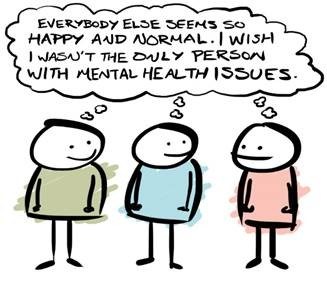I don’t think that there is a single person who doesn’t have at least a little difficulty when it comes to managing certain elements of college life. But when you’re also dealing with a mental health condition, some of the changes and challenges that college brings can feel even more overwhelming. It is important to know that many colleges have accommodations and resources available to help ease the burden of a new environment, workload and social life. Read on for more information about where to access special accommodations on campus, including my experience with several of them.
Campus mental health accommodations will typically be made if you have a mental health problem that causes you challenges in your day to day functioning. This type of support offered by a college can relate to academics or to life outside of the classroom.
 Academic Accommodations
Academic Accommodations
Academic accommodations may include things such as extended time for testing, mentoring services, substitution of courses, reducing a student’s course load and many more. Examples of accommodations outside of academic life may include things such as the ability to have a single dorm, the option to live off-campus, and many more as well. However, you must keep in mind that many of these types of accommodations may only be available if you have a documented mental health condition. This will vary from one university to another, so it is definitely beneficial to do some more research on a particular school.
Campus Life Resources
Beyond these accommodations are resources or services that many colleges offer to the entire student body, but are especially helpful for those struggling with a mental health issue. Even if you are in maintenance mode with your condition, leveraging these resources are often included in your tuition and still help to significantly reduce feelings of pressure and stress. For instance, while my university had a mental health center I took advantage of, they also offered things like tutoring groups, resource center help desk, study sessions, and so much more. Some of these resources took some trial and error to find what I liked, but it was definitely worth it once I figured out what worked best for me. Personally, I very much enjoyed study sessions. These not only helped me prepare for exams, but also helped me meet people and learn new study strategies.
Mental health resources as part of your college search criteria
If you feel that it is essential for you to have access to certain types of resources and accommodations, it can be helpful to put some consideration into the matter when you’re choosing colleges to apply to. As I’ve mentioned, different schools have different policies and procedures in place and it is important to find somewhere that best fits your needs. It feels good knowing that you are prepared and can get the type of help you need if it becomes necessary. This is can be a significant step towards having more control over your mental health and college experience.
With all this being said, I honestly did not take much of this into consideration when choosing my university… But I really wish I would have. This was primarily because I did not realize this extra help was even an option, and that is why I wanted to make all of you aware of this information. It can sometimes feel like you are at a disadvantage dealing with a mental health condition. Struggling with something such as anxiety, depression, OCD, panic disorder, (and the list goes on and on), can some days feel like a full-time job. But there are people out there that understand this and want to be there for you. That is exactly why these types of accommodations and resources have been created.
I’m already enrolled. Now what?
If you are already enrolled and have found yourself dealing with issues related to a mental health condition, it is likely there are some sort of resources available to you through your university. If you are unsure of what is available to you, it is important to talk with someone who is knowledgeable about your school’s policies in order to learn more about what your particular school has to offer. This person can be someone like an academic advisor, a disability resource staff member, or an admissions officer. If you feel like your mental health is in some way holding you back, talking to someone and looking into this type of information can be a very helpful step moving forward. In my case, it was not until about a year and a half in until I discovered some of the many services my university provided. Looking back, I wish I would have utilized these services even more so than I did. Some of the help I received through my university was invaluable, and it is really crucial to utilize these resources while you still can.
Take the first step.
These resources and accommodations can take some extra stresses and difficulties away and help create a more positive college experience. It may seem like a lot of time and effort, but taking these factors into consideration can really make an incredibly significant difference. You’ll never know if you don’t look further into the matter, so I strongly encourage you and your family to investigate what accommodations and resources may be right for you and your situation. Who knows, you might just find something that’s surprisingly helpful. College can be hard enough as it is, but you can help yourself by making your mental health and well-being a top priority. For more information and additional factors to consider when looking at schools, such as size, location, etc, check out NAMI’s list of campus resources, too.
By: Stephanie Alsberg, Anxiety In Teens Contributor